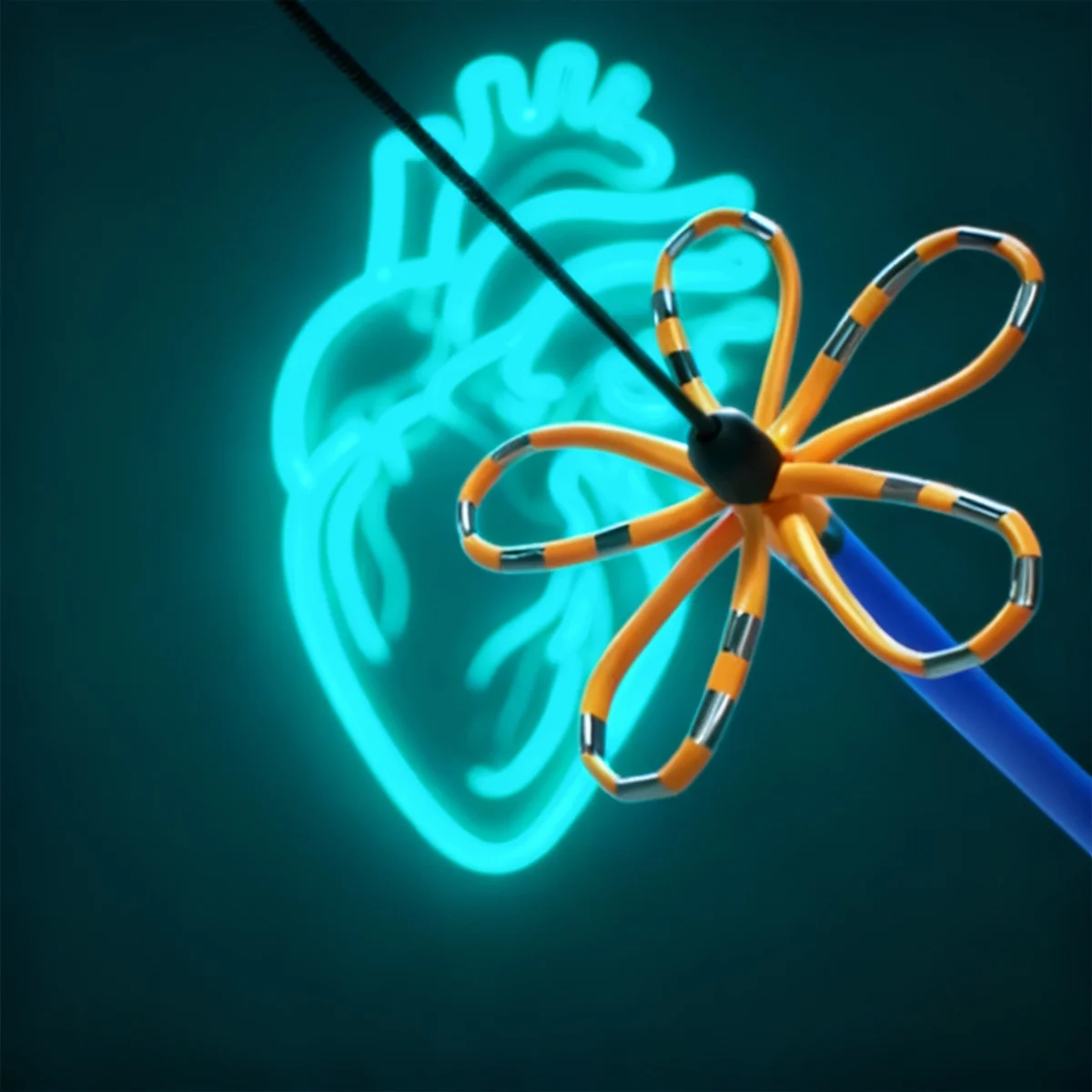There’s no escaping it: vapes and e-cigarettes are everywhere these days. But does that mean they’re completely safe to use? In a nutshell: no, not really.
Vaping has been on the rise in Ireland for about a decade now. In 2016, the HSE’s Healthy Ireland Survey found just 3% of adults were using e-cigarettes. By 2023, the number had increased to 8%. And the figures were even higher among young people. The HSE estimates that 20% of women and 16% of men under age 25 now vape – just one reason, perhaps, why the Irish government banned the sale of vapes to under-18-year-olds later that year.
When vapes first arrived on the scene, they were presented as a safer alternative to regular cigarettes and other tobacco products. But as research into vaping has increased, so have doctors’ concerns about their negative effects on health – particularly when it comes to the heart and heart rhythm.
What Happens to Your Heart When You Vape?
E-cigarettes are essentially tiny, portable heating chambers: they heat up the liquid inside the chamber until it turns into an aerosol, which the user then sucks down into their lungs.
The “e-liquid” in a vape can contain many different chemicals. One of the most common ones is, of course, nicotine. But vape liquid can also contain flavourings, ultrafine particles, organic compounds, metals, and sometimes drugs, such as marijuana and cannabis.
Studies have shown that some of these chemicals – nicotine included – can have a physical impact on the way the heart works. For instance:
- Heart rate – vaping causes the heart rate to increase (the heart beats faster than it normally would)
- Blood pressure – vaping raises blood pressure, both systolic (the top number) and diastolic (bottom number)
- Blood vessels – vaping causes a change in “blood vessel tone” (i.e., it causes the vessels to constrict)
How Does Vaping Affect Heart Rhythm?
Given how vaping affects heart rate, blood pressure and blood vessels, you won’t be surprised to learn it has an impact on the heart’s rhythm as well.
Ordinarily, our hearts beat in a predictable pattern – usually between 60 to 100 beats per minute while we’re resting, and in a regular and even way. Vaping can interfere with this pattern.
One way it does this is by activating the sympathetic nervous system. This is the process our bodies use to help us in times of need, for instance if we’re facing some kind of stress or danger. Vaping with nicotine can put the body into what doctors call a “state of sympathetic activation”, which basically means it goes into fight or flight mode. To deal with the perceived threat, the heart rate and blood pressure increase, meaning the heart also needs to take on more oxygen. The blood vessels constrict more than normal and the heart rate becomes more variable.
Research has shown that nicotine and other chemicals in vapes can also potentially provoke arrhythmias in susceptible individuals or make them worse. Other studies have found evidence that tobacco products can induce changes in the heart’s electrical system, structure and neural network. The worry for vulnerable patients, then, is that vaping could contribute to destabilising the heart rhythm further.
Is Vaping Safer Than Smoking for the Heart?
Vaping is often pitched as a less harmful alternative to regular smoking. But, as the HSE explains, “this does not mean that it is harm-free.” Although e-liquids typically contain fewer chemicals than cigarettes, some of those chemicals are potential risks for cardiovascular health, to put it mildly. Substances that have been found in e-cigarettes include:
- hydrocarbon – a chemical used to deliver the nicotine in vapes, which can cause inflammation or pneumonitis
- acrolein – a substance linked to several lung-related disorders
- formaldehyde – an organic compound linked to lung damage and cancer
- diacetyl – a flavouring chemical that has been linked to serious lung disease
- heavy metals – such as nickel, tin and lead
- propylene glycol and vegetable glycerine – aerosols that can induce heart rhythm issues
Some vapes for sale in Ireland have also been found to contain higher-than-advertised levels of nicotine. In 2024, for example, the HSE’s National Environmental Health Service warned the public to stop using two specific e-cigarette products because they contained illegal amounts of nicotine.
It’s also worth remembering that nicotine is an extremely addictive chemical. Dependency usually sets in quickly, and the risk of long-term addiction is very high. While some studies have found that e-cigarettes can help people to quit smoking, other scientists have argued they encourage dual use – in other words, prompt people to become both vapers and smokers.
Recent polls suggest vaping also encourages people into a habit they wouldn’t otherwise form – particularly if they’re young. A 2025 survey here in Dublin by the TobaccoFree Research Institute of Ireland, for example, found that 76% of teenagers had never smoked a cigarette before they started vaping. The most common age to take up vaping was just 14.
What Does the Research Say?
Until recently, there had been relatively little research into e-cigarettes and their impact on heart health. But that’s beginning to change. Several scientific teams have released new studies in the area, and some of their conclusions raise concerns about the effects of vaping. For example:
Risk of lung damage
A 2023 paper by the American Heart Association says there is increasing evidence that e-cigarettes can acutely injure the lining of the airways, increase inflammation in the lungs and suppress the respiratory immune response (link)
Risk of cardiovascular problems
A 2020 “umbrella review” found that, though vapes might be a “lesser evil” in comparison with regular cigarettes, they clearly cause “an increase in overall cardiovascular risk” to users (link). A later study found that e-cigarette users have “a higher risk of coronary heart disease, arrhythmia, chest pain, or palpitation” (link)
Potential for triggering an arrhythmia
A 2022 study in Nature found that aerosols from e-cigarette solvents can induce heart rhythm issues such as bradycardia (a slow heart rate) and bradyarrhythmia (an abnormally slow resting heart rate). The authors write: “Our study indicates that chemical constituents of e-cigarettes could contribute to cardiac risk by provoking pro-arrhythmic changes and stimulating autonomic reflexes.” (link)
Increased vulnerability to atrial and ventricular arrhythmias
Another 2022 study in the journal Heart Rhythm concluded that tobacco and marijuana products can “facilitate the development of arrhythmias” in both the upper and lower parts of the heart, triggering changes in the heart that can create the right conditions for irregular heartbeats to develop (link)
Why Should People with Arrhythmias Avoid Vaping?
Although abnormal heart rhythms aren’t always dangerous, some – like atrial fibrillation (AFib) or ventricular tachycardia – can cause serious health problems. A heartbeat that’s too fast, too slow or irregular can stop the heart from pumping as effectively as it should, reduce oxygen levels in the blood, and raise the risk of a heart attack, stroke or other serious cardiac events.
The problem with smoking and vaping is that they have the potential to make these issues even worse by:
- increasing the heart rate
- raising blood pressure
- damaging heart and lung tissue
- impacting the electrical activity in the heart
- provoking a new arrhythmia episode
Let’s say, for example, that you suffer from supraventricular tachycardia (SVT). Though rarely life-threatening and not always symptomatic, SVT causes the heart to beat more rapidly than normal – sometimes as fast as 150 to 240 beats per minute. One of the aims of SVT treatment, if you need it, is to slow the speed of your pulse. By increasing your heart rate, vaping or smoking pushes against that treatment goal.
Put simply – if you have an existing heart rhythm problem, vaping could trigger the symptoms you experience or worsen your condition.
Is Vaping Bad After a Heart Attack?
If you’ve suffered a heart attack, your treatment will focus on restoring blood flow to your heart, preventing or breaking down blood clots, and helping your heart return to a normal rhythm.
As we’ve just seen, vaping can interfere with these goals. By raising blood pressure, stimulating a rise in your heart rate or changing the electrical activity in your heart, you risk putting your heart under more pressure as it recovers from the heart attack.
Nicotine-Free Vaping: Is It Safer?
If nicotine is a problem, why not just remove it from vapes altogether? Many vaping products do this already – surely they’re safer?
Unfortunately, this assumes that nicotine is the only problem chemical in vapes. In reality, they contain many other chemicals: flavourings, additives and other substances, some of which carry risks to heart and lung health (see Is Vaping Safer Than Smoking for the Heart? above).
A study released in the US in 2024, for example, found that vapes without nicotine decreased “venous oxygen saturation” – in other words, caused the vaper’s lungs to take in less oxygen:
“Following either vaping or smoking, the researchers saw a significant decrease in resting blood flow velocity in the femoral artery, which runs along the thigh and supplies oxygenated blood to the entire lower body,” CNN Health reports. “Compared with the non-smokers and cigarette smokers, the people who used vapes with nicotine had the most significant reduction in vascular function. The group with the next greatest change was those who used vapes without nicotine.”
Plus – as we noted above – some supposedly nicotine-free vapes sold in Ireland have been found to contain nicotine. Others have contained more nicotine than advertised on the packets. So the issue is more complicated than it may seem at first.
What About Using Vaping to Quit Smoking?
People often wonder if vaping might be a good way to wean themselves off regular cigarettes. Is that true? Well, it’s complicated…
Some research has shown that e-cigarettes can help people stop smoking. A 2019 study on NHS patients in the UK, for example, concluded that “e-cigarettes were more effective for smoking cessation than nicotine-replacement therapy” (when both products were accompanied by behavioural support).
Other studies, however, haven’t been so positive (see Is Vaping Safer Than Smoking for the Heart? above). Researchers have also pointed out that the true long-term health effects of using e-cigarette chemicals won’t be known for some time – the data simply doesn’t exist yet. Meanwhile, the regulation of vapes is in its infancy. E-cigarettes aren’t currently classified as medical devices in Ireland. Nor are they regulated by the Health Products Regulatory Authority (HPRA).
The HSE is pretty clear on the issue: it advises against using vapes to quit smoking. “We advise anyone who wants to stop smoking to use evidence-based medications (medications that are safe and that we know can work well),” they explain. These include:
Nicotine replacement therapy (NRT) – stop-smoking treatments that are available in pharmacies
Prescription treatments from a GP – medicines that can help to reduce cravings and withdrawal symptoms
Counselling support services are also available to help quit smoking. You can find out more about these through your GP or pharmacist. And if you do have a heart issue and want support around the issue, talking to your GP is highly recommended. They’ll be able to advise you on your condition, the medicines you’re taking, and refer you to a cardiology expert if necessary.
To get more detail about effective ways to stop smoking, visit the HSE’s Quit Smoking resources.
Final Thoughts: Protecting Your Heart Starts with Smart Choices
Heart rhythm problems affect different people in different ways. But if there’s one thing that’s true for all patients with a rhythm disorder, it’s that putting extra strain on your heart isn’t a great idea. In that sense, using a vape isn’t worth the risks – some of which are only becoming clearer as the long-term data emerges.
So if you are stuck in a bit of a rut with smoking or vaping, the cardiologist’s advice is to quit if you possibly can: your heart will thank you for it. Of course, breaking an old habit is never easy. The good news, though, is that there’s a lot of support around now to help you make the effort.
The HSE’s Quit Smoking pages are a good place to start. Many of their stop-smoking services are free, and easy to access nationwide. They also run Quit4Youth, a seven-week programme aimed at helping young people to stop smoking and vaping. Citizens Information has a helpful roundup of the available services too.
And of course, if you or a loved one has a heart rhythm condition and wants expert advice about how to stop vaping or smoking, we’re here to help. It’s quick and easy to book an appointment with Dr Lyne at Heart Rhythm Cardiologist. Just head to the Contact page for all the details. Whatever you need, we’ll be glad to support you.
Concerned about your heart rhythm? Get in touch with Dr Lyne at Heart Rhythm Cardiologist.
Vaping and Heart Conditions: FAQ
Vaping devices come in different shapes and sizes, but they all contain two core elements: a solution (known as an e-liquid) and a heater. The heater turns turns the e-liquid into an aerosol (vapour), which the user then sucks down into their lungs.
It varies a lot depending on the individual product. The ingredients can range from nicotine to flavourings like diacetyl, additives, hydrocarbons, heavy metals, vegetable glycerine and acrolein.
No. Some are non-nicotine versions - or they claim to be (some 'zero-nicotine' products sold in Ireland have been found to contain nicotine, while others had more nicotine than advertised on the packaging).
In some ways, vaping might be safer than smoking a regular cigarette - but that doesn't mean they're safe. Recent research has linked vaping to a number of serious health issues, including lung damage and other cardiovascular problems. It also appears to raise blood pressure, increase heart rate, and elevate the risk of triggering an arrhythmia.
In a word: yes. Although rhythm issues vary widely in terms of impact, they can potentially put more pressure on the heart and raise the risk of serious complications such as stroke or cardiac arrest. In that sense, you want to do everything you can to keep your heart strong and healthy, and reduce risks.
It's always worth trying again - and perhaps getting external support to help you. The HSE offers lots of (free) stop-smoking services across the country. And we can help you too. Contact the Heart Rhythm Cardiologist team in Dublin on 01 690 8350 or at [email protected] to make an appointment with Dr Lyne today.





